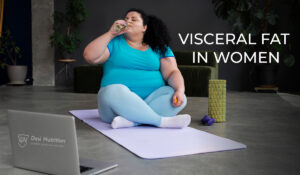Do you know, that a study found out that 95% of people who were 100 years old were on a plant-based diet. Yes, you read it right, they all were vegetarians- people who do not eat meat or people who are on a blue zone diet. And the most interesting thing related to this is that all these people belonged to blue zone areas. Yes, that is why the name- Blue Zone Diet.

This article is going to get an insight into blue zone areas and how a blue zone diet could be beneficial for your health. This diet does not resonate with the zone diet developed by Dr Barry Sears. To find what a blue zone diet is, let’s dive deep into the Blue zone diet. To learn more about Blue Zone Diet, read the full article as it serves as a beginner’s guide to Blue Zone Diet.
Have you ever heard about the blue zone areas? No, have you heard about people living up to 100 years, or more? Of course, you have heard about them or seen their stories, but do you know this is possible? Well it’s not a miracle, it’s actually the diet that they take.
Food plays a vital role in increasing the longevity of people in some communities, but that’s not all. Other factors play a crucial role as well.
Blue Zone Areas:
The people who have lived up to 100 years or past come from blue zone areas. Blue zone areas are the special regions where people live longer than the people living in urban areas. Do you think, we are talking about areas on another planet? Well no, these areas are right here, on Earth. Some of the most famous blue zone areas are:
- Okinawa, Japan: it is an island that is home to Ryukyu people.
- Sardinia, Italy: People living in Sardinia’s mountains and coastal areas are known for their long lifespans.
- Loma Linda, California: The residents of Loma Linda live long because the centric idea of their religious tradition emphasizes healthy living.
- Nicoya, Costa Rica: It is believed that the people of this community live longer because of their deep bonds with their traditions.
- Ikara, Greece: the population of this region has healthy habits that result in their long lives.
So, now that we know that the people of some communities live longer than others, let’s see what is their secret and what exactly is a blue zone diet.
What is a zone diet?

A zone diet includes a balanced diet which is sourced from natural sources of food. The diet is totally plant based and uses whole grains, beans, nuts, and water as the main part of their balanced diet. Here is an insight into a blue zone diet:
Plant-based diet:
The blue zone diet is a plant-based diet which is the foundation of this dietary approach. Fruits and vegetables come in a variety and they make a great option for a vegetarian diet plan because they are packed with nutrients.
Incorporating fruits and vegetables and whole grains is good for you because you will get your essential vitamins, minerals, and fiber along with macronutrients and micronutrients.
If you are looking to start a blue zone diet you should fill your kitchen cabinets with fruits and vegetables and focus on whole grains like brown rice, quinoa or oats.
Meat is not the main source of protein:
The blue zone diet does not focus on meat sources. In fact, the blue zone diet’s 95% focus is on vegetarian foods. Meat is a secondary option of food in the blue zone diet. You just hold your tastebuds and eat meat occasionally as a delicacy.
The reason behind less consumption of meat, especially red meat and processed meats is association with multiple health problems. Even if they are eating meat they keep a check on their portion.
They avoid sugar to prioritize health:
Sugar has empty calories that do not help your body in any way. In fact, it gives you sudden spikes of energy. The temporary energy makes you feel tired and sluggish. That is why you need to keep yourself hydrated and consume food rich in nutrients, fiber, healthy fats, and complex carbohydrates. To keep yourself hydrated, focus more on water and less on sugary drinks. Teas and coffee are also suggested to be consumed in moderate amounts.
Add nuts to your diet:
Blue zone diets focus on nuts as they are considered to be the powerhouse of the diet. Nuts like almonds, walnuts, and peanuts are packed with healthy fats, protein, and fiber that help you to feel full for a long time eliminating the want or need to eat frequently.
Beans are an important part of the diet:
Beans make a major part of the blue zone diet because they are packed with nutrients just like nuts, but beans can be cooked in various ways. You can have bean salad, beans in curry, beans in soup or you can explore the culinary flexibility of beans as cooked in healthy Indian cuisine.
Basic principles of a blue zone diet:
People in blue zone areas have a few basic principles to live by. That is the reason why the diet is effective and supports a happy and long life. People there live their lives by taking care of themselves. Here are a few ways of living in the blue diet zone:
Exercise is the key:
Exercise is an essential part of the life of people in the blue zone communities. People focus on staying active by indulging in various activities like garnering, walking, or participating in traditional activities. They know the importance of moving your body frequently and thus they carry on their life by naturally focusing on body movement.
Hitting a gym every day is not on their list of priorities but doing what they enjoy doing definitely is. Indulge in activities that you enjoy, it could be dancing, swimming, cycling, running, or walking and you will see a difference in your body.
They have a purpose:
People live longer because they have to fulfill a purpose. And what is the purpose of life if not living it? That is what people in blue zones do, they eat healthy, and they keep their bodies fit by moving them frequently because they have found their purpose. They are a close-knit community and that makes a huge difference in defining the purpose of life. They have a reason to wake up in the morning, it could be their work, their families or simply being a part and contributing to their communities.
They make genuine connections:
Social connections could be a reason to wake up in the morning and look forward to living your life. Strong connections among the community members make people happy as they feel loved and supported. They make time for their friends, family, and other community members realizing how important social connections are for one’s life.
Less stress more happiness:
People in blue zone areas live a slow-paced life. They do not take stress the way people in modern societies do. Relaxation and rest are a priority there. They even practice techniques like meditation and mindfulness to keep themselves stress-free.
They live in the present:
People in blue zone areas live longer and are happy because they know the importance of being present. Thinking about the future is stressful because no one knows what it holds, but the present moment is right here and that is what people in blue zone areas focus on. They practice gratitude and find happiness in little things.
Health benefits of the blue zone diet:

A blue zone diet is plant-centric. 95% of the diet comes from natural food sources including fruits, vegetables, whole grains, and nuts. There are multiple health benefits of incorporating a blue zone diet in your life:
Risk reduction of chronic disease:
Your diet will be all plant-based foods and also whole foods. The less use of processed ingredients will help to control blood pressure and cholesterol levels leading to a reduction in the risks associated with chronic diseases like heart disease, type 2 diabetes, and certain cancers.
Helps in weight management:
The food rich in vitamins, minerals, fiber, macro, and micronutrients are going to help your body fulfill the nutrition requirement and keep you feeling full for longer times. This way you will be consuming less calories and burning calories for weight loss will become easy for you. Also, when you are feeling full you won’t feel hungry frequently; thus a blue zone diet helps to improve weight management.
Improved gut health:
The food rich in fiber helps to improve digestion, immune function and overall health. Healthy gut will be an advantage as it can help with nutrient absorption, fight harmful bacteria and even boost immune system.
Enhanced cognitive functions:
Blue zone diets might have potential to reduce the risk of dementia. Consuming a blue zone diet or let’s say living by the principles of blue zone areas can help improve cognitive function as well.
Increased energy levels:
Blue zone diet focuses on complex carbohydrates that provide a sustainable source of energy to the body. This will make you feel energetic and productive throughout the day because complex carbs release energy slowly.
Potential for longevity:
A blue zone diet does not guarantee 100 years of living but it will definitely make you a little too healthy and can reduce the risk of diseases and illnesses, increasing your life expectancy.
How to incorporate a blue zone diet into your life?
If you want to incorporate a blue zone diet in your life, keep the above mentioned points in mind. Apart from that, the beginning could be challenging because you would have to make some lifestyle changes and you would take time to adjust.
Below written are a few points that can help you to incorporate a blue zone diet in your life:
Start small:
You should start by initiating small steps towards a blue zone diet. You can switch your dietary approach within a day or two. Start to add more fruits and vegetables in your diet along with whole grains and eat nuts and other healthy snacks if you feel hungry.
Slowly and gradually you will see yourself eliminating the need of eating processed foods, sugary drinks, and red meat because your body will be full of essential nutrients.
Explore the plant sources:
Blue zone diet is plant centric. Do not hesitate from using a variety of fruits and vegetables and experimenting with them. Try different cuisines. You can always go for Indian cuisine as it is an amalgamation of different cultural cuisines. You should try Rajasthani cuisine, Gujarati meal plan, Punjabi diet plan which are all plant-centric.
Drink a lot of water:
No matter which diet you follow, you should focus on drinking more water. Blue zone diet specifically focuses on water to keep yourself hydrated. You can drink tea and coffee as well but in moderate amounts.
Listen to your body:
You should pay attention while consuming each food. You should know how your body responds to different foods. If you feel some foods do not make you feel good, you should avoid them.
Challenges associated with the blue zone diet:
The blue zone diet is easy to follow for people who belong to the blue zone area. While for you it could be challenging in many ways.
The blue zone diet works for people living in the blue zone area because of other principles as well, like being connected to the community, focusing on the purpose of life, living stress-free, and prioritizing relaxation. But your lifestyle is completely different from what those people have been experiencing for years.
Here are a few challenges that you might have to face when following a blue diet:
Nutrient deficiencies:
People who strictly follow a blue zone diet would face deficiencies of some specific nutrients like B12, iron, and calcium, especially vegans. You should consult a dietician who can help you follow a blue zone diet by ensuring that you are getting essential nutrients including the ones that are found in animal products.
Social challenges:
The one challenge that you might face would be developing a strong sense of community. Blue zone diet majorly depends on the relationship between community members, and the sense of community might differ when it comes to people living in urban areas.
A strong social connection leads to a healthy and happy life and if you don’t have one, focus on making the existing relationship stronger or find the ones that you genuinely want to keep in your life.
Personal preferences:
A blue zone diet is a general guideline for people to live a healthy life. But if you have a medical condition you might need a dietician who can plan a diet for weight loss or any other health goals keeping in your individual needs and personal preferences.
Frequently Asked Questions:
Do blue zones eat eggs?
Ans. People in blue zones do eat eggs. In fact, they eat the whole egg for 2-4 times a week and does not throw the yolk out just to consume the egg white.
Do blue zones eat sweets?
Ans. Eating sweets is not a no in blue zones as they are part of festivities. But their foods do not contain processed sugars, preservatives or other processed ingredients.
Do blue zones drink tea?
Ans. Blue zones drink tea but in moderation. Their main focus is on consuming plenty of water to keep themselves hydrated.
Do blue zones exercise?
Ans. Blue zone people exercise by keeping themselves active by incorporating natural physical activities in their daily lives. They focus on activities that keep their body moving. Instead of hitting a gym twice a day they like to take walks, they like to dance, they prefer running or taking their pets for walks and similar activities.



